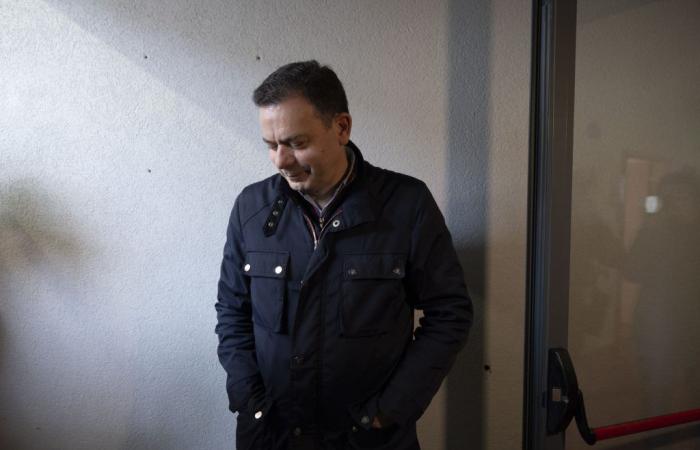A group of seven PSD activists, including former minister Rui Gomes da Silva, appealed to the PSD president, Luís Montenegro, to “put Portugal first”, demonstrating “focus, responsibility and sense of state” to “understand the importance of building a stable Government, with a solid majority, that can carry out the reforms that the country needs”. Something that would involve an understanding with Chega that the social democratic leader said, throughout the entire electoral campaign, that he was not willing to do.
The subscribers of the Portugal em Primeiro manifesto, to which DN had access, say it is imperative to build “a right-wing government solution, without fear and much less conditioned by what the extreme left wants”, as the alternative to the understanding of the Democratic Alliance (AD) with Chega “is having Governments without stability and short term, which will in no way serve the country’s interests”.
“Whoever does not want to understand it, whoever does not want to dialogue, whoever does not want to build a true non-socialist alternative for Portugal, will be playing into the hands of the left, and on that side, we and many Portuguese, will never be”, reads the document, whose first signer is former deputy Miguel Corte-Real, who leads the PSD bench in the Porto Municipal Assembly.
In addition to him, and Rui Gomes da Silva, one of the most notable defenders of dialogue with André Ventura, Paulo Ramalheira Teixeira, former mayor of Castelo de Paiva (and who responded to the collapse of the Ponte de Entre-os -Rios), doctor Manuel Pinto Coelho, economists João Saracho de Almeida and Susana Faria, and Paulo Jorge Teixeira, president of the Cooperativa do Povo Portuense.
Miguel Corte-Real told DN that he went ahead with the initiative because “he was tormented by the need to have a stable Government”. He intends for Montenegro to “stop to reflect” and “realize that it can govern four years in stability”. According to the municipal deputy, this movement was born “so that he can be prime minister”, but leaves a warning: “I am not satisfied with the possibility of the PSD choosing not to build a stable majority to carry out the necessary reforms.”
For his part, Rui Gomes da Silva says that it is necessary not to create a Government that “could last a year and a half or two”, as the state of the country “requires courageous measures” that will be difficult to take under the threat of early elections at any time. instant.
Without knowing whether Montenegro’s “no is no” to Ventura has to do with pressure from European leaders or from “some people who appeared in the campaign without realizing that the time in which they were leaders has passed”, the former Minister of Parliamentary Affairs said believe that the PSD president will reconsider. “If I didn’t have hope I wouldn’t have supported this idea, but that hope is residual, so is it,” he told DN.
More legitimate elections
Convinced that “only an agreement, which guarantees a stable Government, with solid commitments for four years, puts Portugal’s interests first”, the authors of the manifesto Portugal em Primeiro, which owes its name to the famous phrase of the founder of the PSD , Sá Carneiro (“First, Portugal; then, the party; finally, the personal circumstances of each one of us”), emphasize that “the electoral results were clear”. This is to the extent that “the Portuguese said they did not want to continue to be governed by the left”, which is why on March 10 “they gave the greatest result to the non-socialist space” since 1991.
However, this group of activists highlights that, despite the PSD having been “transparent” in asking for a Government with an absolute majority, as “a vote of confidence in the party to save Portugal again”, and Montenegro having assumed “that it will not wanted to make agreements with Chega and wanted to govern with a majority built, at the limit, on the Liberal Initiative”, the Portuguese reacted in a way that must be interpreted by the leader of the center-right coalition. According to the authors of the manifesto, the Portuguese “responded to the challenge and demonstrated their trust in AD to lead the Government, but they also said that it should not do it alone, and that to do so it would have to find, in the non-socialist space, a solution to guarantee the necessary stability.”
At a time when the results of emigration remain to be determined, the authors of the manifesto highlight that the Portuguese “responded strongly to the challenge of the President of the Republic”, with the lowest level of abstention since 1995. “All elections, complying with the rules of democracy, are legitimate, but the greater their participation, the more legitimized they are”, they write, adding that it is “fair to conclude that these elections are the most legitimized in the last 29 years”.
For the authors of the manifesto, the problem of “a country shamefully at the bottom of Europe”, with four million poor people or on the threshold of poverty, a middle class “increasingly residual and suffocated by the highest tax burden ever”, and areas as Health, Education, Justice and security are “unable to provide a decent service to citizens”, the PS is “mainly responsible”.





